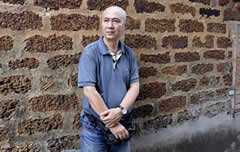Medellin International Poetry Festival
Poetry, Shamanism and Original Songs

The 28th International Poetry Festival of Medellín continues its process of vital construction in support of the profound peace and reconciliation of the Colombian people, after the long war in our homeland, inviting the people of Medellin to raise awareness in the spirit of dialogue, the loving care of the earth and life, a legacy that we must deliver in splendor to future generations. READ
Poetry, Shamanism and Original Songs
To Think and Dream From Our America
Press Release 02.03.2018

By Flaminia Cruciani
Special to Prometeo
A few years ago I founded a cultural movement called Poetry and Discovery, together with Tomaso Kemeny, Angelo Tonelli and other poets. In this movement I tried to express what poetry means to me. Let's start from the name of this movement. READ
Su Yang (Popular Republic of China, 1969)

The sun is shining on the street, a bum is walking on the street, I take my bedclothes with me and I put up the building,
The building is ten floors high and I sleep on the ground.
Go east, you can smell the sweet of wheat in Pingluo,
Go west, you can see the beautiful flowers in Yinchuan. READ
Poetry Should Not Be Defined By Poverty

© Ali Cobby Eckermann
Special to Prometeo
In 1964 the first book of Aboriginal poetry was published in Australia. It featured the writings of Oodgeroo Noonuccal (1920 – 1993), selling out in several editions, and ensuring her success as one of Australia’s highest selling poets. For most lovers of poetry around the world this must seem very recent. Aboriginal Australian culture is deemed the oldest cultural continuum in the world. Hence the publication of ‘We Are Going’ by Oodgeroo remains a realistic calendar of the uprising by Aboriginal people, using literature as both expression and protest. READ
Ancient Syncretic Art In To Multy Medial Unity
The New Is The Forgotten Old
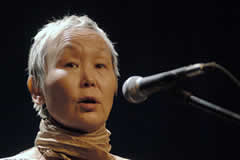
By Sainkho Namtchylak
Translation by A.Rovner
Proposed projects for the new seasons of 2005
What is a song in the original meaning of the word? It is essentially a short story, conveyed within a compact musical form. By means of a song it is possible to discern the epoch, the customs and the ways of the time that the song was created. A song is capable to carry within itself an entire historical cultural domain. It is not in vain that the saying goes: “the song is the soul of the people,” since by means of a song it is possible to convey through the words and the music not only the emotions but the sign of the time when this or that song was created. READ
The spirit of poetry in the construction of a new life in the world

By Hector Kunene
Special for Prometeo
We live in the society that forever changes. Change on its own is good but not easy. We are not taught how to accept change. More especially when change has to start with us and within us. It is not easy at all. On the broader perspective, every household has its rules and regulations. Whether one grows in Africa or in Europe, the same rule applies, we are all growing under a hand that feeds us what it is exposed to. You can never take someone to where you have never been unless you are a prophet. So growing up is a process that guides us throughout our journey of life. Whether we like it or not, change directly affects us. READ
My work on language and power was an elaboration of a Tagorean sentiment: Ngugi wa Thiongo

By Devapriya Roy
Toook from scroll.in
One of Africa’s greatest writers, the Kenyan Ngugi wa Thiong’o, was recently in Delhi for the ILF-Samanvay Translations Series of talks organised by the India Habitat Centre and Seagull Books. When he agreed to speak to Scroll.in, the besotted fan girl that I am, I went to meet him for our chat clutching my battered college copy of Decolonizing the Mind. Excerpts from the conversation:’ READ

By Elizabeth Torres*
Sentiments of indignation and disappointment have been filling the forums and cultural newsfeeds and newspapers in Latin America and the world, upon the announcement from the Ministry of Culture of Colombia that it will not provide economic support this year to the International Poetry Festival in Medellin, an event which was declared National Patrimony of the country in the year 2009, and which was therefore under law supposed to receive 550 million Colombian pesos (approx. 101 million euros) yearly for its development.’ READ
Poetry and the Scaffolds of Hope
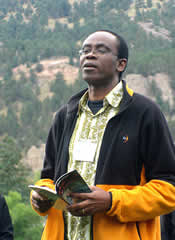
By Nnimmo Bassey
Special for Prometeo
Poetry and song capture our understanding of life and provide us with platforms to express ideas that may otherwise be inexpressible. Poetry represents memory as well as vision. It is the chant as well as the wail. It could come as joyous and exuberant calls, it could also come as a dirge marking the crossing of the slim line between here and there, between life on this plane and life across the river. The poet could be a story teller, the griot, or the prophet. With eyes closed she sees worlds that open-eyed folks are unable to comprehend. READ
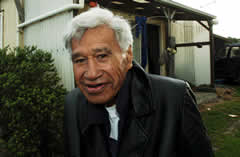
By Gabriel Rosenstock
Who knew that Māori poetry has been written in English for over 120 years? Arc Publications are known for their translations and there are many readers who would have welcomed a volume of poems translated from the Māori in preference to this. Then again, as Māori novelist Keri Hulme, informs us: ‘Māori is a word-of-mouth language, it has only recently been turned to print, and a great deal of its mana and strength still lie outside the blackened word…’ The blackened word – how extraordinary!’ READ
The Power of Poetry for Global Transformation
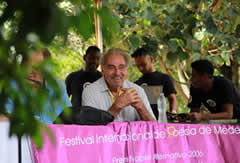
By Carl Ruck
Special for Prometeo
The ancient Romans called a ‘poet’ a vates, which is to say, a ‘priest’ or shaman, as in the Vatican, named originally for the hill of oracular shamans in Rome even before it became the home of the Popes. Its most basic etymology relates the vates to the ‘voice’ or vox of the speaker, traceable back to the Sanskrit vad, ‘go forth’ and vat, ‘arouse spiritually.’ READ
Recived messages by Hanane Aad

Photo by © Nidia Naranjo
Festival Internacional de Poesía de Medellín
Never late to say thanks to you all for the unique experience we had in Medellin, Colombia - of which it is said it is the land of poets. I would like to add also that it is a land of poets capable of turning the black pages of the history of their country into white ones. Therefore, it is the Colombian poets who embraced first, through the 27th International Poetry Festival of Medellin, the beginning of a new era in the life of Colombia and their own lives and those of all their compatriots as well. READ
Colombias First Poetry Festival in Times of Peace

Photo by © Nayla Azzinnari
RLA laureate Helen Mack among Gulliver's children
By Nayla Azzinnari
Right Livelihood Award Foundation
The 27th International Poetry Festival of Medellin took place in Colombia from 8-15 July. After 53 years of armed conflict, the peace deal signed by the Colombian Government and FARC, and disarmament of rebels completed in June under UN’s monitoring, this year’s Festival was the first held “in times of peace”. For that very reason, the Festival also extended its activities to new zones: the so-called “transition areas” where ex-guerrilla combatants begin their transition back to civilian life. READ
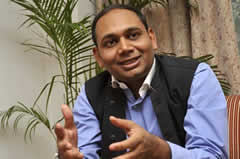
He is poet-diplomat and the author of two memoirs and five collections of poems. He is also the editor of CAPITALS – an anthology of poems on 185 capital cities of the world (Bloomsbury). He received the SAARC Literary Award 2013 and was nominated for the Pushcart Prize in 2013. His poems have appeared in Poetry Salzburg Review, Asia Literary Review, The Stony Thursday Book 2015, The Missing Slate, The Long Exposure Magazine, The Galway Review, Eastlit, Gargoyle, The Caravan, Indian Literature among others and have been translated into Irish, Russian, Italian, Spanish, Slovenian, Portuguese, Mandarin and Nepali. READ
Poems by Peter Laugesen (Denmark, 1942)
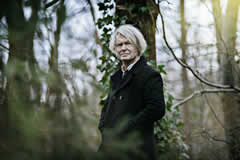
He is a poet, playwright, translator and musician of several Cd's and Lp's in the company of other musicians and artists. First published book, “Landskab” (Landscape”), 1967. Since then more than 60 books of poems, essays. Art criticism and essays in catalogues, collaborations with musicians and painters in exhibitions or on stage. Pictorial works in public places. Received many prizes, among them the great prize of the Danish Academy of Literature, 1992. Since 1995 a member of the Academy. READ

He is a poet, writer, essayist and Independent Scientific Researcher in the field of World Spiritual Heritage and Sacral Esthetics. Born in Rahovec, South East of Kosova, in 1972, he graduated at Prishtina University in Oriental Studies. He is the Poet Laureate of Gold Medal for Poetry as bridge to Nations, Axlepin Publishing-Philippines, being selected among many world excellent poets, writers, photographers and painters that contributed for making World a better place, 2014. He is Founder and Director of International Poetry Festival, Poetry and wine in Kosovo. READ
Ann-Margaret Lim (Jamaica, 1976)
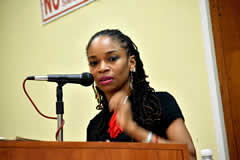
Her critically acclaimed first collection of poems, The Festival of Wild Orchid, which was published by Peepal Tree Press in 2012, was nominated for the UK Guardian First Book prize and received Honorary Mention in the 2013 Bocas Prize. She lives in appreciation of the mentorship from: Wayne Brown, Mervyn Morris, Eddie Baugh, Kwame Dawes, Olive Senior, and the ground breaking examples of greats such as the Caribbean-spawned, Derek Walcott and the now generation of Loretta Colins Koblah and Safiya Sinclair. READ


